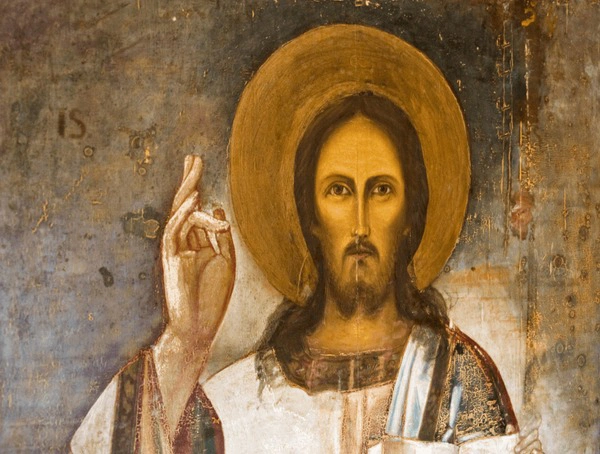
Dining with the Outcasts: Jesus in Matthew Chapter 9:Verse 10
In Matthew Chapter 9:Verse 10, Jesus challenges societal norms by dining with tax collectors and sinners, highlighting His mission of inclusivity. His actions defy social barriers, offering love to the marginalized, and calling modern faith communities to do the same.
Joshua Brooks
04/12/2024 - 7 months ago

The Setting of Matthew Chapter 9:Verse 10
In the biblical narrative of Matthew Chapter 9:Verse 10, we find Jesus in a setting that challenges social norms of His time. This passage highlights Jesus dining at Matthew's house, accompanied by tax collectors and sinners. Tax collectors were often despised in Jewish society because they were seen as collaborators with the Roman authorities, who imposed heavy taxes on the people. Sinners, in this context, referred to those who did not strictly adhere to Jewish laws and customs.
During this period, dining together was more than just sharing a meal; it was a sign of fellowship and acceptance. By choosing to eat with tax collectors and sinners, Jesus made a powerful statement about His mission. He sought to reach out to those marginalized by society, offering them love and acceptance. This act defied the expectations of religious leaders and demonstrated a radical inclusivity that was central to Jesus’ teachings.
The setting of this event is crucial in understanding Jesus' approach to ministry. It shows that He did not shy away from controversial or uncomfortable situations. Instead, He embraced them, using such opportunities to teach important lessons about God's kingdom. Jesus' choice to dine with those considered outcasts highlights the inclusive nature of His message and the transformative power of His presence.
Jesus’ Mission of Inclusivity
Jesus' actions in Matthew Chapter 9:Verse 10 illustrate His commitment to breaking down social barriers. By deliberately associating with tax collectors and sinners, He challenged the prevailing social structures that isolated these groups. His mission was not confined to those who were already considered righteous or acceptable by societal standards. Instead, Jesus extended His love and message of redemption to everyone, regardless of their social standing.
The inclusivity demonstrated by Jesus is a cornerstone of Christian theology. It serves as a reminder that God's love is universal, transcending human-imposed divisions. This narrative encourages believers to examine their own prejudices and to reach out to those who may feel excluded or marginalized. By following Jesus' example, Christians are called to build communities that reflect His love and acceptance.
In today’s world, the lessons from this passage are particularly relevant. Societies are often divided along lines of race, class, and belief. By engaging with diverse groups, we can foster understanding and connection, challenging the divisions that separate us. The message of inclusivity is not just a historical account but a living principle that can guide our interactions and community-building efforts.
- Read Also: Embracing the Love and Compassion of God
Challenging Societal Norms
The actions of Jesus in this narrative were revolutionary for His time. By dining with tax collectors and sinners, He openly defied societal expectations and religious conventions. This bold move did not go unnoticed; it attracted criticism from the Pharisees, who questioned why He would associate with such people. Jesus' response to their criticism underscored His mission: "I have not come to call the righteous, but sinners."
This response reveals a profound truth: Jesus came to offer salvation to all, particularly those who were aware of their need for it. By spending time with those considered sinners, Jesus exemplified the essence of His mission—to seek and save the lost. His engagement with marginalized groups demonstrated the priority He placed on grace and redemption over judgment and exclusion.
For contemporary believers, this passage serves as a call to action. It challenges individuals and communities to reassess their attitudes towards those who are different from them. By embracing the example set by Jesus, Christians can work towards dismantling societal norms that perpetuate exclusion and division, fostering instead an environment of acceptance and love.
Implications for Modern Faith Communities
The narrative of Matthew Chapter 9:Verse 10 has far-reaching implications for modern faith communities. It calls for a reevaluation of how we engage with those outside our immediate circles. Just as Jesus did, believers today are encouraged to reach out beyond their comfort zones, embracing those who may feel alienated or judged by society.
Faith communities are tasked with creating spaces of belonging, where all individuals can experience the love and acceptance that Jesus demonstrated. This involves not only welcoming those who are different but actively seeking to understand and appreciate their unique perspectives. By doing so, communities can become places of healing and reconciliation, reflecting the heart of Christ’s ministry.
Ultimately, the message of this passage is about transformation—of individuals, communities, and society as a whole. By embodying the inclusive love of Jesus, faith communities can play a pivotal role in bridging divides and fostering unity. This transformative power is the essence of the gospel, offering hope and redemption to a world in need.




















